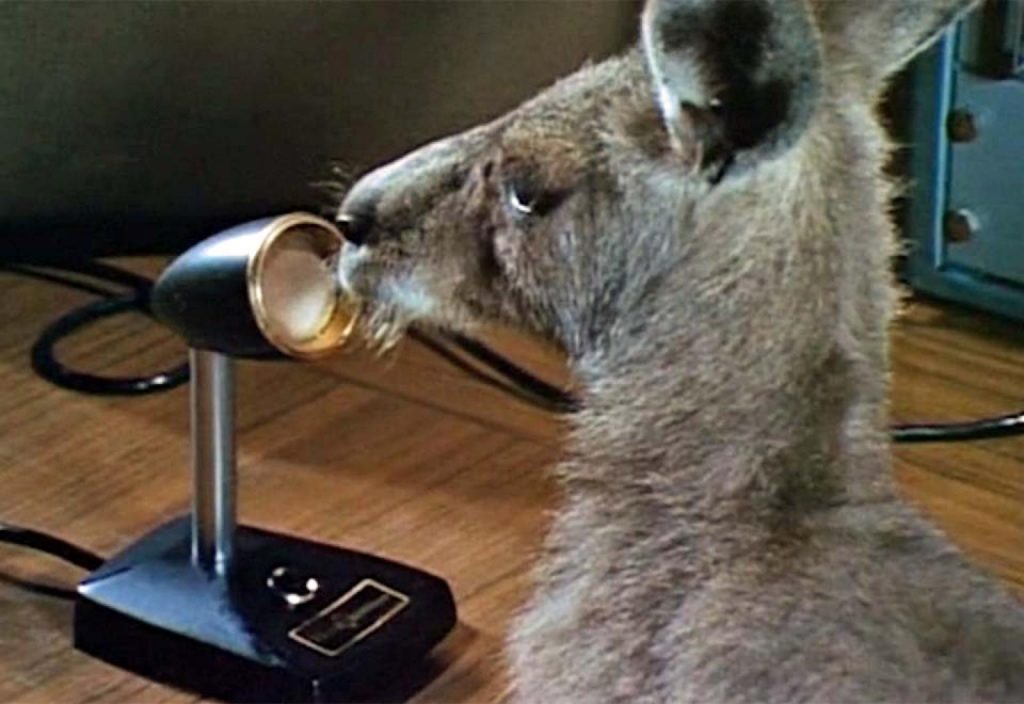
Picking up from Part 1, Christina’s quest for a decent voiceover demo continued, as did my attempt at directing her towards voiceovers success. The day after our first emails back and forth, January 20, 2004, she had some more questions:
“I actually was sent another email by the producer yesterday and he said because it is only a preliminary part of the audition process he doesn’t want lots of money spent on demos. He says he is looking for a smart bossy teenager who will teach a little red dinosaur about life in modern times, and also a very bossy, astute (what does that mean?) teenage girl that runs a big juice factory. I know I can do that, because I am naturally bossy and impatient and all those things. I have ideas of different styles of my voice I can use but I do not know what exactly to say. The producer said, all the voices are subjective (which means…?) and when they hear it they will know the correct person. If he likes my voice he will then audition me with proper scripts. Can you please help?”
Here’s my advice on making the kind of demo she’s describing:
“It was good of the producer to tell you not to spend money on a voiceover demo. I would encourage you to still take the suggestions I gave you in the previous email and go ahead and study and practice, then make a professional demo. Call one of your local production houses and ask if you may visit with them for a few minutes to ask what they like to hear on a demo. Have them show you a couple of the demos they think are produced well and packaged well. What your demo looks like is important, too. It shows you’re serious about VO. (This advice from 2004 is outdated, of course. You would now have the production house send you a few .mp3 samples of their best demos. No need for packaging, obviously.)
As for the demo you need to do for the producer, just go with what he told you. By the way, the word astute means “sharp,” “quick,” “shrewd.” Simply put, you know how to make things happen. The word subjective means how you perceive something, such as music. Say, you love Outkast, but can’t stand Limp Bizkit, and your friend loves Limp Bizkit, but hates Outkast. You perceive those two bands one way, your friend another way. So, it comes down to pretty much what you like or what seems to fit. No hard and fast rule.
The producer gave you two different characters and two different scenarios. Create a little script, 15-20 seconds for each girl in each situation. Try asking these questions:
- Who am I?
- Where am I coming from?
- Where am I?
- Who am I with and how do I feel about him/her?
- What do I want from this person?
- What am I doing to get what I want?
- How does the character dress?
- How does the character stand, sit, move, speak, etc.?
- What is the relationship between your character and the other characters?
- What is the character’s role or purpose in the script? The girl teaching the dinosaur is a teacher. The second girl is a whiz kid who runs a factory. Think how the questions relate to these jobs.
Each character and situation will lead you to different answers. After you write down your answers, take your natural bossiness and impatience, and combine it with your answers to create a character. When you figure out your character and you’re ready to play with it and record, speak the lines to another person, real or imagined, like you’re going to get a response back. Underplay your character, instead of “acting.” Be more natural. Less is more. Be physical when you do the character. Sure, nobody can really see you if you’re a cartoon character, but if you stand like the character you’ve created in your mind and move your hands, face, and mouth like the character, it will come alive more.
That’s just a little of what it takes to develop a character, but I think it’s enough to get you started. It looks like a lot of work, but if you’ve got an imagination, then you could answer those questions in just a couple of minutes, write up a little script, and have it done in about an hour.
Always remember, acting and voice-overs come down to pretending; it’s playing. Have fun!”
I hope Christina was finally able to make her dream come true by getting some coaching, practicing, and then making a great voiceover demo. Maybe all these years later she’s in her home studio and someone’s directing voiceovers she’s performing, having fun, and making a good living at it.
© Peter Drew, 2021
Next article: Voice Over Producer: Getting the Best Performance From Voice Over Talent
